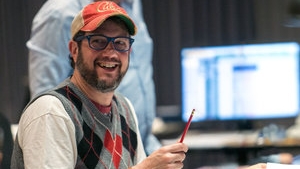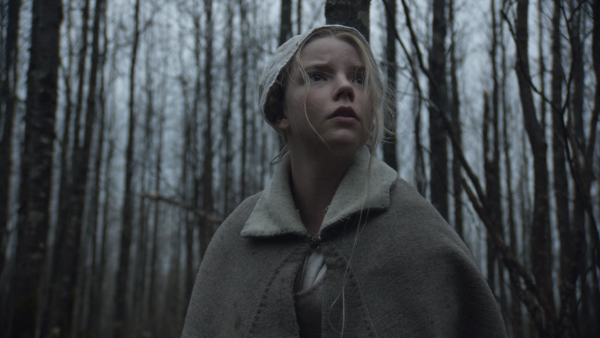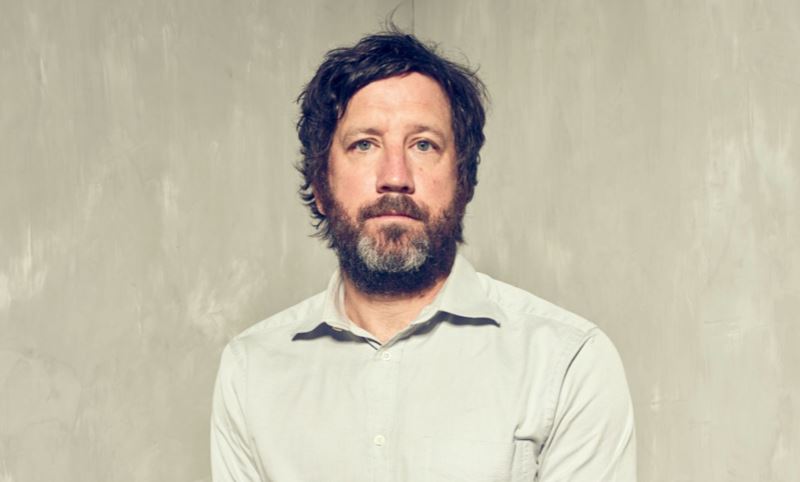
The last time we spoke with David Wingo, he was wrapping up work on Loving, the latest in a series of continuous collaborations with friend and director Jeff Nichols. Their relationship has resulted in some standout music in films like Take Shelter and Midnight Special. Since then, Wingo has taken a crack at TV shows. Musicians don’t like being pigeon-holed, and lucky for Wingo that Kidding and Barry couldn’t be any further removed from each other.
Last month, Scott Z. Burns‘ film, The Report, hit theaters (and is now on Amazon Prime). It’s a riveting thriller (based on actual events) that follows idealistic Senate staffer Daniel J. Jones who, tasked by his boss to lead an investigation into the CIA’s post 9/11 Detention and Interrogation Program, uncovers shocking secrets.
Wingo is proficient with electronic music, and it is on full display here. But he also uses brass and piano to beautifully accentuate the understated patriotic beats of the film. Enjoy our time with David Wingo.
GoSeeTalk: Great to catch up with you again. How has your year been?
David Wingo: It’s been good. Barry season 2 was the beginning of my year which was a ton of fun. Then I had a nice little Summer break, and got to spend time with family and travel. After that, I got to work on season 2 of Kidding and I just finished it, so it’s been a good year!
Where did The Report fall in all that?
The Report was this exact time last year. When I got the call, they were all ready, and had finished editing – it was the middle of October when I started. They were hoping for the Sundance premiere which we ended up making. I got right in and it was a very quick process. We were mixing in the middle of December. I was hunkered down and not seeing the world for a couple of months. [Laughs] Amazon bought it opening weekend at the festival.
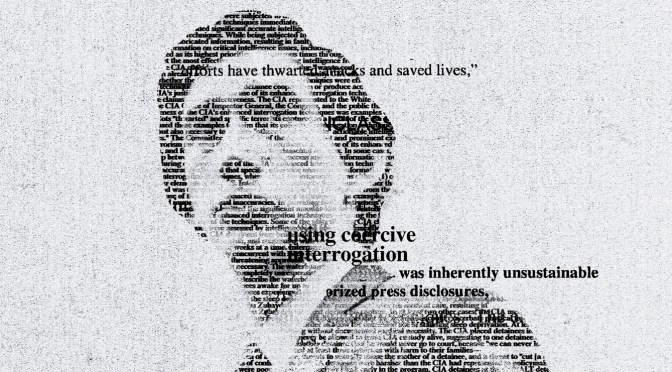
What kind of notes did you get from Scott Z. Burns, and how did you want to approach the score?
Oh, I got great notes! I’ve never had more of a thorough jumping off point ever. It was so nice, and they did that because they were done editing. The editing room was closed. So I was kind of on my own and they were really thoughtful about what would be the best way to have this be a collaboration since I wasn’t going to be going into the edit bay.
I watched the movie with Scott and Greg O’Bryant, the editor. It was a long and informative process, and they gave me a blueprint of what they wanted for the score: for the characters, for the scenes and the narrative. We talked about how music should amplify or counter narrative beats, what was and was not working with their temp music.
Usually, when you start on score, you have that fear of the empty canvas that you have to get past. It can be overwhelming. But I left there with a feeling of exactly what we needed to do. It was really appreciated.
I think that trying to classify this film is a little difficult. Is it a thriller, or is it a drama? Is this heroic, even patriotic? The brass and piano work lends itself to the latter, so what was the palette that you or Scott wanted to help tell the story?
Part of the way we approached this movie was as a hero’s journey for Dan Jones (Adam Driver). He’s just a guy trying to do his job, and he’s been tasked to uncover the truth in this situation, and he uncovers it despite the many obstacles put in his way by the system that he came to D.C. to work in. A lot of it is about him slowly losing faith that A. the government he worked for would sanction this torture, and B. that the government he works for is trying to stymie him. The hero’s journey for him is that he’s not being thrown off course despite all this. Against all hope, he still maintains belief in the system and he still follows the legal path.
Scott wanted brass to reflect that, and that was the only specific he gave about the instrumentation. He wanted brass to open the film when Dan first shows up in D.C. to give a regal, stately, and patriotic feel to it. That brass theme that goes with him began slowly deteriorating through the movie to reflect Dan’s journey and the alienation that he’s feeling. But it is bookended with him walking onto the National Mall and walking away from it. We wanted it to feel patriotic, but not in a way that was way too hopeful.
My first pass at it was very cheery, like “Dan did it, he got the story out there!” And Scott was OK with it at first, but pretty soon, before the mix, he thought it was too upbeat. The text comes on and states that no one has been held responsible for what are essentially war crimes. Dan did accomplish his goal, but he’s not happy with the final results either. It’s patriotic at the end, but it feels more worn down than it was at the beginning, and that was by design.
There’s a lot of electronic work, and some of it at times is reminiscent of what you did with Midnight Special – the persistent droning that plays in a track like “Breaking In”.
That track in particular is when the CIA comes in, and takes Dan’s servers. They had temped in some Midnight Special cues actually, so they wanted very much to feel like a thriller and that real serious shit is going down.
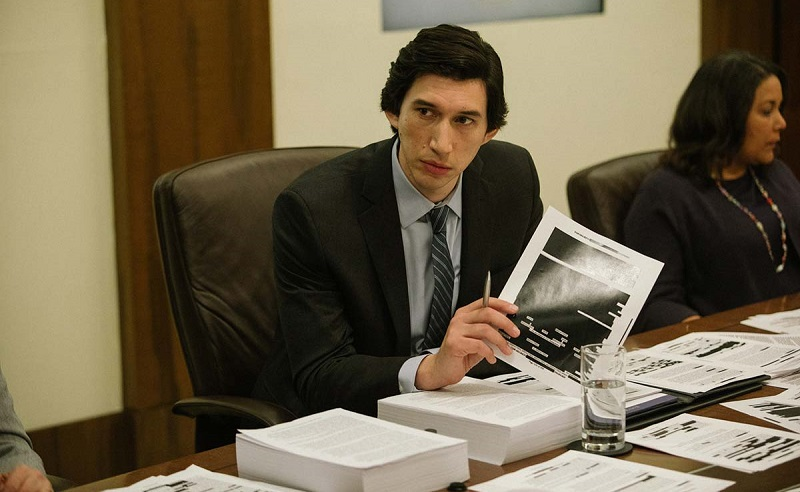
Report reminds me Spotlight or Dark Waters. It’s the kind of movie that we need to see and that gets these important stories out there.
I just saw that two nights ago. That makes a great companion piece to this. It’s great.
When you start a project with a director, is it more important to get the emotion right or the expectation of what audiences expect in a certain genre?
It’s really a combination of all that. On this film, I didn’t have a lot of time, so I had to start right off the bat writing for scenes with very specific themes. But when I have more time, specifically with the relationships I have with David Gordon Green and Jeff Nichols, I get to know about their films way in advance.
I had been hearing about Midnight Special for years and years and years, so we I had ideas of the music after reading early drafts of the script. I start writing music while they’re shooting to capture a melody or progressions that feel like they capture the right emotions and the right sonic palette and instrumentation. With Midnight Special, the main theme wasn’t made to picture, I was just making music. The theme that runs throughout and opens the picture, that came from reading the script, and talking to Jeff about it.
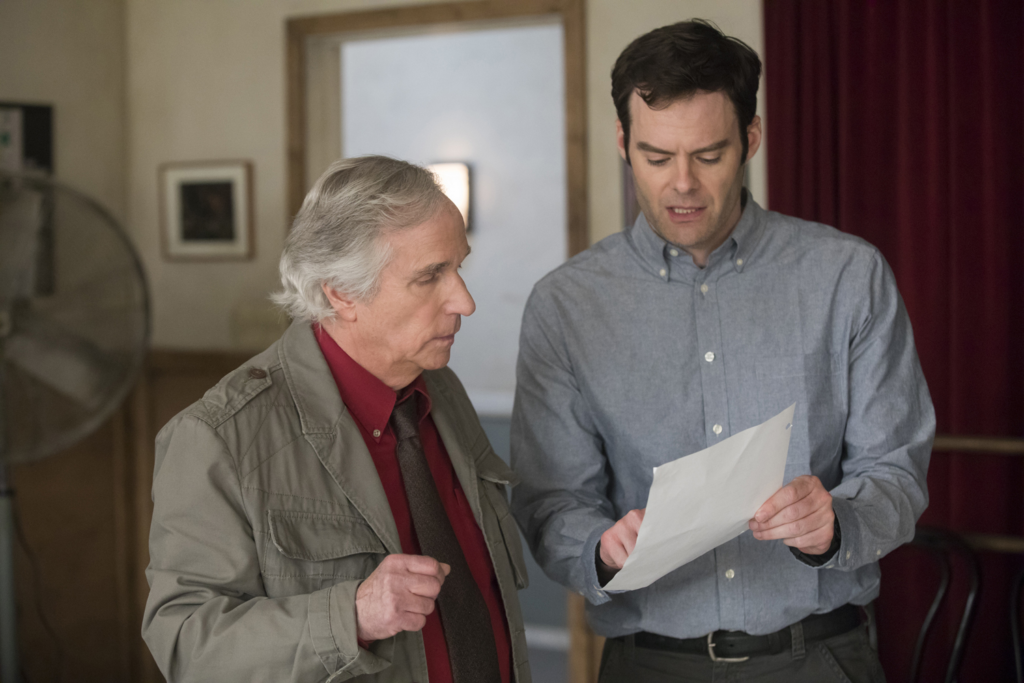
When you have an idea in your head, how do you get it out? Do you hum it, do you write it down, or do you grab an instrument?
I started out as a guitarist, and was a guitarist only in college as a singer/songwriter. That’s the only instrument that I feel like I excel at, but now it’s hardly ever guitar. It really is a project dependent thing. For instance, on Barry, sometimes there’s not even a melody or something I could hum. Quite often it’s more like sound design, and the music is based on loops and drones and Bill Hader is really into that type of stuff. There are also melodic piano themes so again, it’s scene dependent.
When I started out, I had not classical training, and my first few scores were not in the traditional lineage of film scores. I’ve kind of gone back to basics that I never had. I love writing on piano now. I moved to L.A. two-and-a-half years ago, and in the studio where I work, there’s a baby grand, so whenever I had the chance to do anything melodic that’s what I love doing.
Kidding is the show I scored for Jim Carrey and Michel Gondry and that’s much more melodic than I’m used to doing. So when I was writing, it was a lot of fun and I felt like, “oh, this is what people have always done.” There’s hardly any piano in that score – it’s a lot of accordion samples, Mellotron samples of flute and clarinet, but I start every melody I came up with on that piano. The sample libraries are great, but when it comes to the writing process they just can’t beat the real deal like that piano.
There’s a track in The Report called “Their Side of the Story” that has some great piano work. Was that you playing?
[Laughs] That was the owner of the piano at my studio, Drew Donley. I wrote the part in my studio. I can cheat the parts of playing piano using Midi. I appreciate the complement, but I could not sit at the piano and play that correctly. I wrote it, but when it came time to record that, I got Drew to work his magic on that a couple other cues that were beyond my skill level. [Laughs]
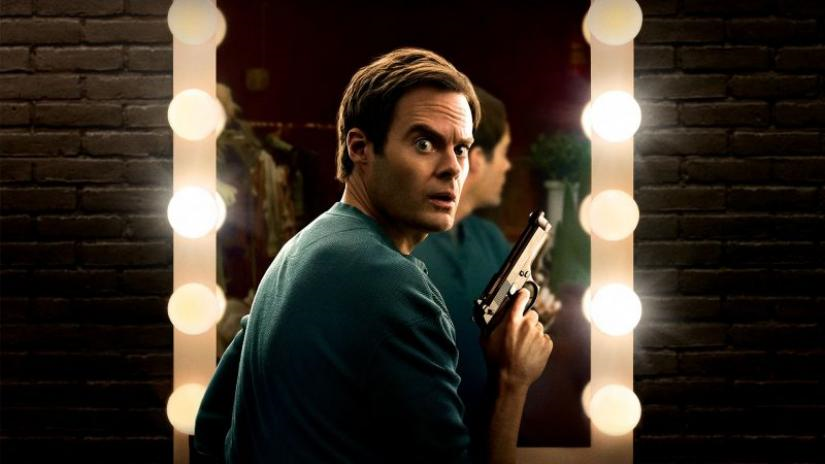
Let’s end this with your work on Barry. The show is funny, but not in ways you’d expect. It’s dark, and seems like Breaking Bad with more humor. How do you think the music has progressed from season one to season two?
When we were making it, I wasn’t even thinking of Breaking Bad. It didn’t even occur to me until halfway through season two, then I was like, of course. Now I see the similarities, and on paper it totally makes sense. It has the same kind of anti-hero that you’re asked to identify with and who really does want to do the right thing, but at the same time, you’re looking at it going, “God, Barry. You’re just a terrible person.” But the tone is so much its own thing that I don’t even know what to compare the tone to.
Because of that, it was a really difficult beginning when I started scoring it. Usually the director and editor have already or are temping with music, but nothing ever felt right to Bill and Alec because they were really going for such a unique tone that you only know it when you stumble upon it if that makes sense. That came to the acting, the performances and the score which was a tough one to give direction for. I would hear, “that’s too comedic.” Or “that’s too dark.”
So it was a fairly frustrating beginning but also very exciting knowing that what we were working on was going to be very unique. It took about a month to finally get it and thankfully I was brought on early. And once we found it, we were off and running. It tows a very tight and specific line of the comedy, the melancholy, and the darkness. In a dark comedy, the comedy usually comes through the violence and the darkness – which is very much Tarantino’s style – but this is not that. They are two completely separate things; the violence is almost always really ugly and nasty and sad.
Bill wanted to play Barry’s violent scenes off as a bummer, and show that he doesn’t like doing this. He wants to believe that it isn’t him, but it is and it sucks. There just no comedy there. And the comedy is played extremely dry, so Bill never wanted to play it like comedy. So it’s odd that for my first “comedy” series, it’s some of the uglier and most experimental music I’ve made.
Thanks to David for his time. You can find out more about his work at his official website. The Report was released theatrically on November 15, 2019. It is now available on Amazon Prime and other streaming platforms. Season one and two of Barry are available on HBO GO.
The Report tells the tale of idealistic staffer Daniel J. Jones (Adam Driver) who is tasked by his boss Senator Dianne Feinstein (Annette Bening) to lead an investigation of the CIA’s Detention and Interrogation Program, which was created in the aftermath of 9/11. Jones’ relentless pursuit of the truth leads to explosive findings that uncover the lengths to which the nation’s top intelligence agency went to destroy evidence, subvert the law, and hide a brutal secret from the American public.
